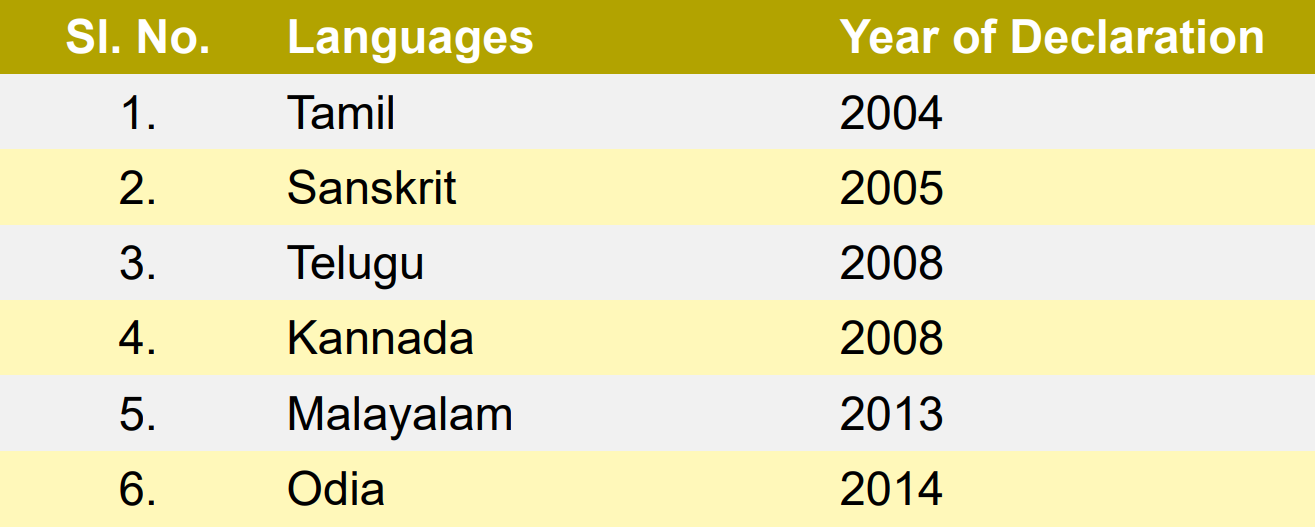Rapid Fire
Classical Language Centres Demand Autonomy
- 26 Aug 2024
- 2 min read
Recently, concerns over the autonomy of Special Centres for Classical Languages have intensified, with demands for independent functioning to effectively promote Telugu, Kannada, Malayalam, and Odia.
- India recognizes six classical languages: Tamil, Sanskrit, Telugu, Kannada, Malayalam, and Odia, with dedicated centres for each, though only the Tamil centre enjoys autonomy.
- Centres for Telugu, Kannada, Malayalam, and Odia operate under the Central Institute of Indian Languages (CIIL) in Mysuru, facing challenges in event organization and staffing due to financial dependencies on CIIL.
- Project Directors from these centres sought autonomy and submitted reports, but have received no further guidance from the Union Education Ministry.
- Tamil and Sanskrit receive significant financial support, with Tamil being autonomous and Sanskrit having dedicated universities, while the other classical languages struggle with limited funding and vacant positions.
- For example, the Telugu centre in Nellore and the Odia centre in Bhubaneswar are severely understaffed, with limited financial resources impacting their operations.
- The Government of India established the status of "Classical Language in India" in 2004, recognizing languages with significant historical and cultural value.
Read more: Classical Languages





